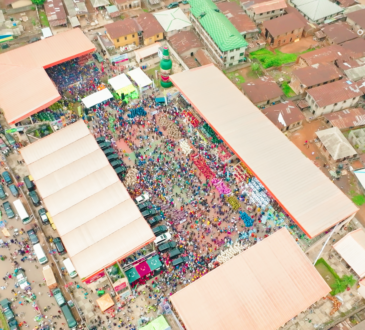
A Master’s degree is an advanced academic degree earned after completing a Bachelor’s degree program. A Master’s degree typically requires two years of full-time study to complete and can be earned at colleges and universities around the world.
The cost of a Master’s degree can vary depending on the country where the degree is earned, as well as the specific type of program. In Nigeria, the average cost of a Master’s degree is N1.5 million. This cost includes tuition, fees, and living expenses for two years of study.
While the cost of a Master’s degree may seem high, it is important to remember that a higher education can lead to better job opportunities and earnings potential. In Nigeria, graduates with a Master’s degree earn an average of N7 million per year, which is nearly twice the average salary for Nigerian adults with only a secondary education.
Investing in a Master’s degree is an important decision that should be made carefully. However, for many students, the investment is worth it due to the increased earning potential and job opportunities that come with this advanced academic degree.
The Cost Of Living While Studying For A Masters Degree In Nigeria

The average cost of living for a student in Nigeria is about N40,000 per month. This covers the cost of food, housing, transportation, and other basic necessities. However, the cost of living can vary significantly depending on the city you choose to live in and your lifestyle.
If you are planning to study for a masters degree in Nigeria, you will need to budget for the additional costs associated with your studies. These include tuition fees, books and materials, and other expenses such as travel and accommodation.
With the rising cost of living, it is important to factor in all of these additional costs when budgeting for your masters degree in Nigeria. Although it may be tempting to cut corners on some expenses, doing so could jeopardize your ability to complete your studies and realize your full potential.
Nigerian Universities Offering Online Master’s Degree
In the last few years, especially with the surge in web surfing and an internet connection, universities all over the world have taken the huge step. They offer students the fantastic opportunity of studying and getting a degree from the comfort of their homes.
Recently, this e-learning system has seen a tremendous increase and even some universities in Nigeria have decided to take a leaf out of the book of their foreign counterparts and incorporate the e-learning scheme into their education system.
And interestingly some of these Nigerian universities even have online programmes for master’s degree. These universities are;
- Ahmadu Bello University
- University of Nigeria, Nsukka
- University of Port Harcourt
- Joseph Ayo Babalola University
- National Open University of Nigeria
What are the Entry Requirements for Obtaining a Master’s degree in Nigeria?
Before you can apply for a master degree in Nigeria, you must already have a bachelor’s degree (undergraduate degree) in any university within the country.
Also, for entry to a Master degree, you need an upper second class(a ‘2.1’) or an equivalent. However, some universities and courses in Nigeria also accept students with lower second class degrees(2.2s).
And to earn a master degree in any state or public universities in the country, you need to complete about 36 to 54 credits of study (or 60 to 90 quarter-credits). This equals 12 to 18 college courses.
How Long Does it Take to Obtain a Master’s degree in Nigeria
Mater’s degree is of two categories; academic and professional. Typically, master degree spans between one to three years depending on the course of study and the institution.
Tuition Fees for Master Degree Courses in Nigeria
Below are the cost od each master degree course in Nigeria. Keep reading.
Tuition fees for Masters in Business
Average tuition fees for a master’s degree in courses like Business Administration, Economics, Banking and Finance is ₦120,000. For Insurance and Actuarial Science, Accounting, Marketing, as well as Business Management, the fees, is ₦120,000.
Tuition fees for Masters in Engineering
Average tuition fees for a master’s degree in engineering courses is ₦270,000.
Tuition fees for Masters in Law
Average tuition fees for a master’s degree in law is ₦270,000
Tuition fees for Masters Medicine
Average tuition fees for a master’s degree in Medicine and other medical-related courses. Courses like Human Anatomy, Physiology, Dentistry, Biochemistry, Pharmacology, Medical Laboratory Science, Nursing, etc., is ₦300,000.
Tuition fees for Masters in Information Technology
Average tuition fees for a master’s degree in courses like Computer Science, IT is above ₦200,000.
Tuition fees for Masters in Humanities
Literature, Philosophy, Religion, and Cultural Studies, Music, as well as Theatre Arts, pay below ₦120,000. Also, Fine Art and Design, History and Liberal Arts courses usually have tuition fees below the average ₦120,000 per year.
Tuition fees for Masters in Education
Master’s degrees in Education are available at an average cost of ₦150,000 per year.
Tuition fees for Masters in Social Sciences
Masters in Social Sciences like Sociology, Psychology, Political and Administrative Studies, etc., can cost about ₦250,000 on average.
Tuition fees for a Master’s Degree in Sciences
The average cost of a master’s degree in Sciences like Chemistry, Physics, Microbiology, Plant Science & Biotechnology Animal and Environmental Biology, Geology, Biochemistry, etc., is ₦280,000.
Scholarships For Masters Degrees In Nigeria
There are a few scholarships for masters degrees in Nigeria. The first is the Nigerian Scholarships for Masters and PhD students which is provided by the Nigerian government. This scholarship provides full funding for students to study at any accredited Nigerian university. The second scholarship is the Chevron Nigeria Scholarship which is also provided by the Nigerian government. This scholarship provides full funding for students to study at any accredited Nigerian university. The third scholarship is the Shell Scholarship which is provided by Shell Nigeria. This scholarship provides full funding for students to study at any accredited Nigerian university.
Conclusion
The cost of a masters degree in Nigeria varies depending on the institution and the course of study. However, on average, you can expect to pay between NGN 1.5 million and NGN 3 million for a masters degree. While this may seem like a lot of money, it is important to remember that a masters degree can significantly increase your earning potential and provide you with greater job security.




